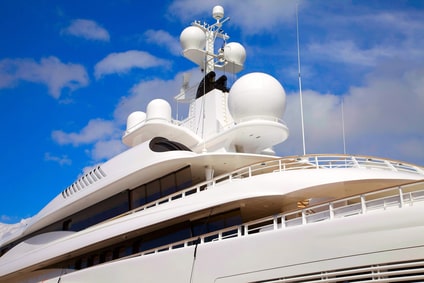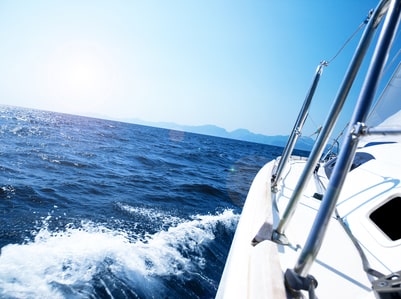When it comes to purchasing and operating a yacht, there are a lot of factors to keep in mind. Beyond maintenance, safety, and maritime laws, there are also considerations regarding the construction of the vessel that can often lead to more questions than answers. One common question seen time and time again is related to the “Yacht Certification” tag seen on many larger boats. What exactly does it mean and when is it necessary? This post will help clear things up and explain why yacht certification is an important consideration for boat owners.

Yacht Certification is provided by the National Marine Manufacturers Association (NMMA) to confirm that a particular boat model has been manufactured to meet all ABYC standards of safety, design, and construction. The manufacturer must undergo an annual inspection to maintain certification. To round out the process, each vessel is tagged with a permanent “Yacht Certification” plate.
The most influential group in the world of boat manufacturing is the NMMA, an organization that ensures a wide variety of vessels are constructed to the highest standards possible. The NMMA provides certifications to manufacturers of recreational boats who meet standards set by the American Boats & Yacht Council (ABYC). Boat builders can become members of NMMA, have their vessels certified, and even undergo routine audits to ensure compliance against the frequently evolving standards.
For each model of craft that is certified compliant, the NMMA will provide a durable placard that is installed and displayed on each manufactured vessel. According to the NMMA, about 85% of all boats that are sold in the U.S. are certified and will contain the appropriate placard. It is a testament to the construction quality and safety standards achieved by the builder.
The placards are mandated to be permanently installed and in the case of “Yacht Certification” plates, durability is crucial for ensuring that the data plate remains readable throughout the vessel’s lifespan. In the marine environment, that’s no easy task, and that’s why MPC’s Metalphoto® photosensitive anodized aluminum has been the material of choice for 50-plus years, offering resistance to fading, corrosion, and abrasion common in harsh marine environments. MPC’s Metalphoto® Nameplates is the most durable and popular solution, offering an expected outdoor lifespan of 20 years or more.
There are two main types of NMMA placards you will see on recreational vessels. For boats less than 26 feet in length (and all pontoon boats), a ‘Capacity Tag’ is used, listing NMMA and U.S. Coast Guard safety standard compliance statements and information about the max capacity of the vessel. Vessels 26 feet or larger will have a ‘Yacht Certification’ plate with compliance statements, but no capacity information.
The main reason for this difference is that federal law dictates that all vessels 20 feet or smaller must contain capacity information. NMMA takes a more conservative approach and requires any NMMA-certified vessel under 26 feet to have this. Currently, there are no federal laws regarding capacity management for larger vessels 26 feet and longer.

Buying a boat with NMMA tags is important because, when present, both consumers and legal bodies know that the boat was manufactured to meet an extensive set of requirements that go beyond the basic federal mandates. There are currently 58 ABYC standards grouped into 31 categories that NMMA uses to certify all vessels, including steering, power, and electrical systems, among many others. Additionally, the manufacturers are required to undergo routine inspections from third-party providers to ensure ongoing compliance. Data from the U.S. Coast Guard indicates that NMMA-certified boats are safer than non-certified.
As a potential or existing owner/operator of a 26 foot or larger vessel, it is important to remember that ‘Yacht Certification’ does not include any required vessel capacity limits, and it is up to the boat owner to operate mindfully. The main reason for this lack of guidance is that the larger size of these vessels leads to maximum capacity calculations that are determined by “stability” rather than “displacement” as in smaller boats. Larger boats can typically fit more passengers than seating capacity, so the overall stability of the vessel is what matters most. You can usually find a stability analysis to use as a basis of a maximum capacity estimate in the design documentation from the boat manufacturer.
Moreover, the NMMA ‘Yacht Certification’ tag is installed during, and is representative of, the manufacturing of the vessel. This means that further modifications that may have been made since or from previous use should be assessed before purchasing a used boat. The certification is a matter of construction quality and not an ongoing representation of the vessel’s compliance and adequate safety measures.
There are often many tags displayed inside a vessel, but the ‘Yacht Certification’ plate provided by NMMA is an important one to look for. Understanding the context of why and how these plates were initially attached can help buyers and operators make more informed decisions for smarter, safer operation.
Our sales engineers are experts in automatic asset tracking, tagging and identification,a nd can answer all your questions. Get in touch now.
Lets Talk ›